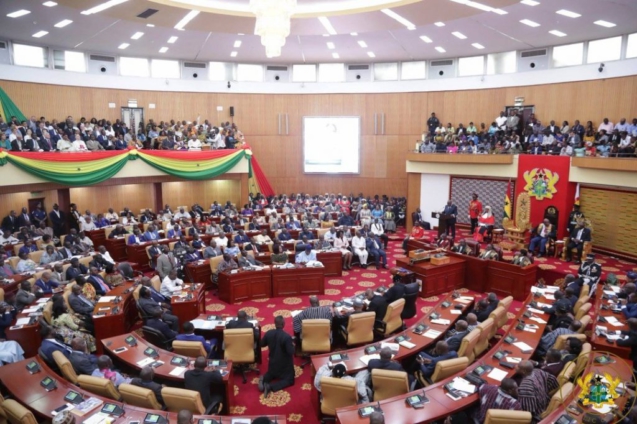Now that Parliament has passed the Imposition of Restrictions Bill (IRB), I appeal to the President to declare a state of emergency to give him the power to suspend certain rights, such as the right to practice one’s religion in a group setting or to peaceably assembly or to even hold political rallies.
It must be emphasized, even at the expense of stating the obvious, that fundamental human rights can be suspended only in an emergency. Article 31 (see also Act 472) provides the mechanism for such suspension.
The Constitution also provides that certain rights can be regulated by law even in ordinary times on grounds of defence, public safety, order, health.
For instance, even in normal times, one must register a political party as a corporate body but not a partnership notwithstanding the right to form a political party. Similarly, one’s right to practice their religion is subject to the criminal law, which can prohibit the mutilating of womanhood notwithstanding the importance of this as a religious practice. One’s right to assembly can be regulated so that it cannot be exercised when people are asleep or at the airport or at a military facility, etc.
It is a fundamental error to confuse the suspension of rights during an emergency to the regulating of rights during a non-emergency. Conceptually, the former is derogation and the latter is a clawback.
Rights can be suspended only in an emergency via the process outlined by Article 31. Rights cannot be suspended otherwise. Similarly, rights can be restricted but NEVER suspended in normal times.
It is hard for me to understand how or why legislators will vote to give a President the power to suspend their political activities in normal times. But this is Ghana!!
We may not like or recognize it but there is in our Constitution a huge distinction between the derogation (i.e., suspending) and clawback (i.e., restriction) of rights. The two are NOT interchangeable and MUST NOT BE confused.
Derogation of rights can be done in parts of or the whole country. A good example of the former is a curfew in an area of ethnic conflict versus a nationwide ban on religious services, as contemplated by the recent ban. By way of contrast, restriction of rights is generally of universal application.
Derogation of rights is always time bound. After all an emergency cannot exist forever. If it does then it is a norm. This is why Article 31 has such clear rules on time frame. Au contraire, restriction of rights is not time bound. For instance, in the interest of public health, government can ban some types of tattoos with a law that has no sunset clause.
Ghana is alone in having difficulty to declare an emergency during this troubling times, apparently because we want to suspend rights by relying on clawback articles. This is a grave error.
But now that the NIA has suspended the registration exercise, it is my fervent hope that an emergency will be declared to give legal effect to the suspension of the right to worship, education, religion, or other fundamental rights in accordance with the terms and conditions outlined carefully by Article 31.
For the avoidance of doubt, I fully support all the measures announced by the President but hasten to add that he must declare an emergency to clothe the measures with constitutionality.
128/1820 is a bona fide scam and sham.
Da Yie!

Latest Stories
-
Ghana-Russia Centre to run Russian language courses in Ghana
5 hours -
The Hidden Costs of Hunger: How food insecurity undermines mental and physical health in the U.S.
5 hours -
18plus4NDC marks 3rd anniversary with victory celebration in Accra
8 hours -
CREMA workshop highlights collaborative efforts to sustain Akata Lagoon
8 hours -
2024/25 Ghana League: Heart of Lions remain top with win over Basake Holy Stars
9 hours -
Black Queens: Nora Hauptle shares cryptic WAFCON preparation message amid future uncertainty
9 hours -
Re-declaration of parliamentary results affront to our democracy – Joyce Bawah
10 hours -
GPL 2024/25: Vision FC score late to deny Young Apostles third home win
10 hours -
Enhancing community initiatives for coastal resilience: Insights from Keta Lagoon Complex Ramsar Site Workshop
10 hours -
Family Health University College earns a Presidential Charter
10 hours -
GPL 2024/25: Bibiani GoldStars beat Nsoatreman to keep title race alive
10 hours -
GPL 2024/25 Bechem United keep title hopes alive with narrow win over FC Samartex
10 hours -
2024/25: Dauda Saaka scores as Asante Kotoko beat Dreams FC
10 hours -
M.anifest reflects on galamsey’s devastation 11 years after ‘No Shortcut to Heaven’
11 hours -
We’ll have the last laugh – Sammy Gyamfi slams EC’s “cantata” re-collation
11 hours

